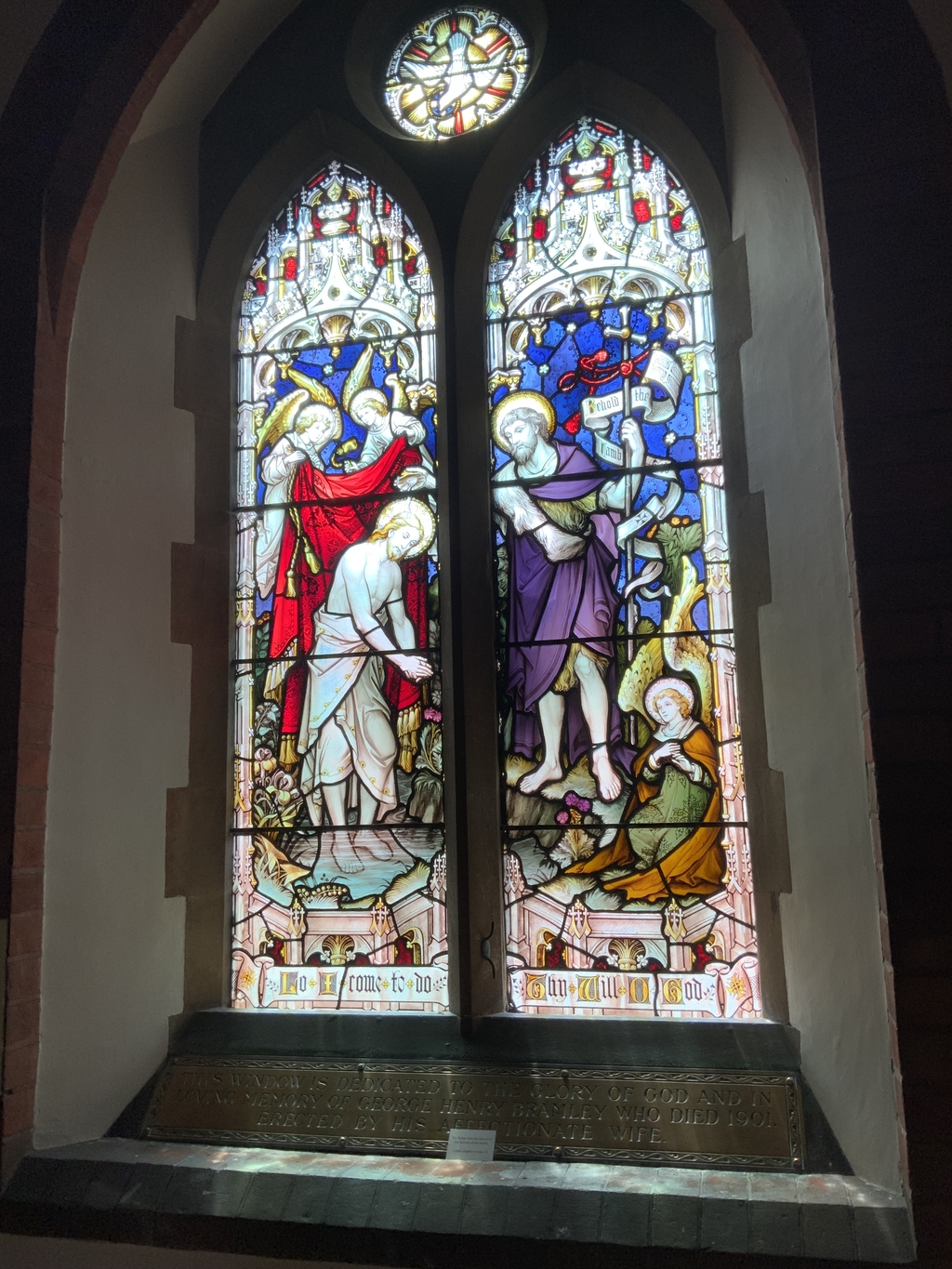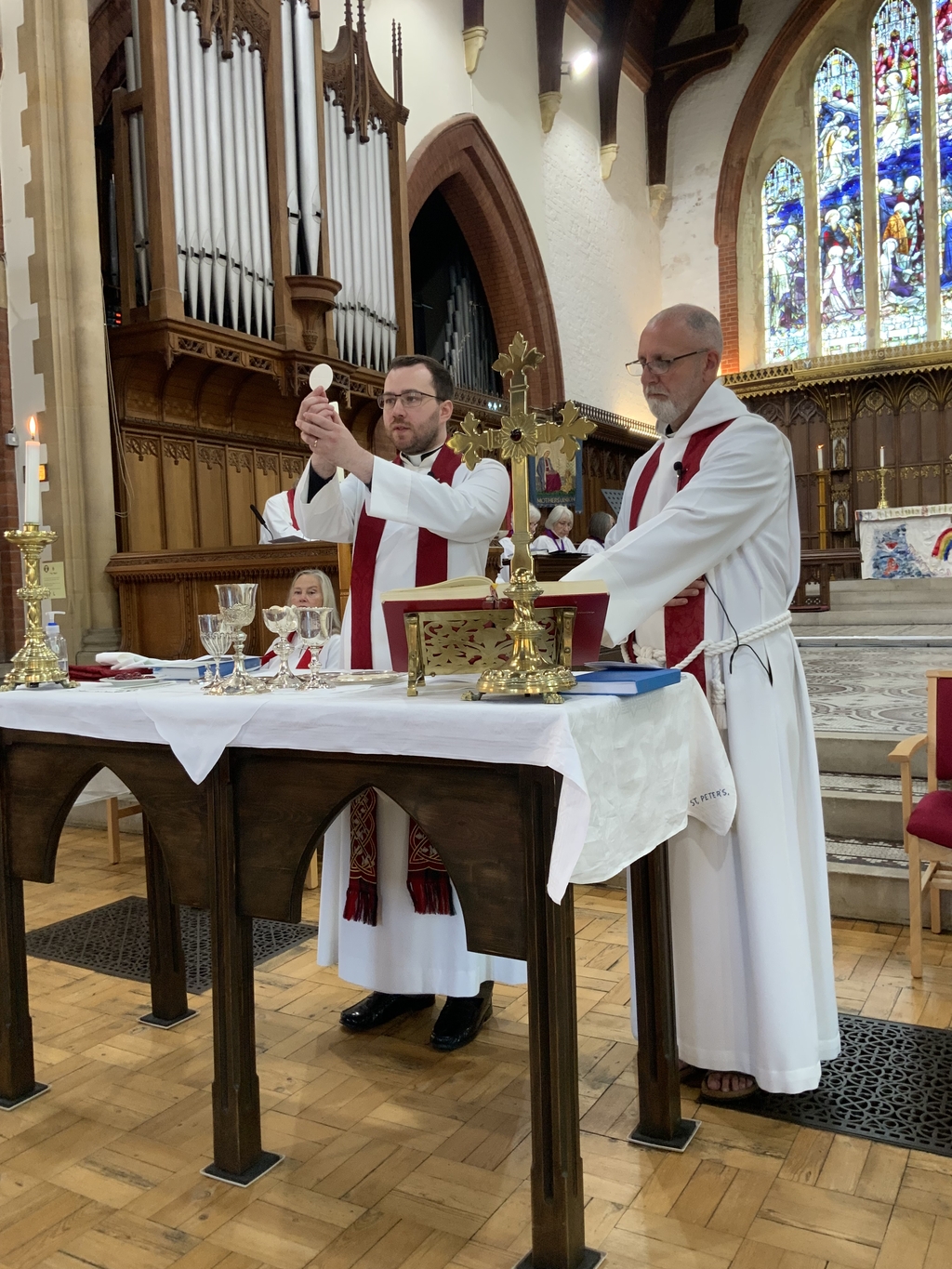Our Gospel reading for today immediately follows on from the report of what the disciples had been doing – preaching, casting out demons and healing the sick. Word of their extraordinary ministry and their beloved teacher and friend Jesus soon spreads throughout the area. People start to wonder who Jesus is, with some suggesting that he is the prophet Elijah has come back to life. Others think it must be John the Baptist raised from the dead. King Herod himself is frightened that Jesus may indeed be John, the man he had put to death for the most craven of reasons: not wanting to lose face in public, having made a promise to grant any request to his niece whose dancing had so beguiled him.
The rest of the Gospel reading is a flashback of the story of how John came to be executed, in spite of King Herod knowing he was a holy and righteous man. It tells of the tragic end of the man who knew that his mission was to prepare the way for people to recognise Jesus as the Messiah, the One sent by God to bring salvation to the world.
Mark’s telling of the story of the death of John the Baptist is somewhat at odds with the historian Josephus’ (AD 37 – post 100AD) account, who suggests that King Herod had John killed because he feared an insurrection, not because he had had his head turned by an alluring dance.
Whatever the reason behind John’s untimely death, it is likely that Mark recounts his story to hint at the death that was to befall Jesus. It is as if he is warning his readers that, even after the successful mission of the disciples and Jesus’ popularity with the people, a tragic death awaits Jesus. Pontius Pilate, the man who washed his hands of the responsibility for Jesus’ death, knew Jesus to be a righteous man, but he gave him over to be killed because he was too weak to stand up to the crowds crying out for him to be crucified.
We know, with hindsight, that the story doesn’t end there. Years later, when Paul is in prison in Rome, about to be executed, he writes a letter to the Christians in Ephesus, telling them about what Jesus came to accomplish and that they, too, are part of the Body of Christ on earth and that they can be involved in the ongoing mission of Christ.
It is strange and sad to think that John the Baptist, Jesus and Paul were all killed because the men in authority were frightened of having their power taken from them, frightened of losing face or frightened of upsetting the status quo. If only they had been able to hear and receive the message of a new way of living, of being forgiven, of being able to know the truth. If only they had been willing to imagine the possibility of a whole new kind of kingdom, a spiritual kingdom, one not ruled by fear, but one in which the only power is love.
Revd Christina Rees CBE














